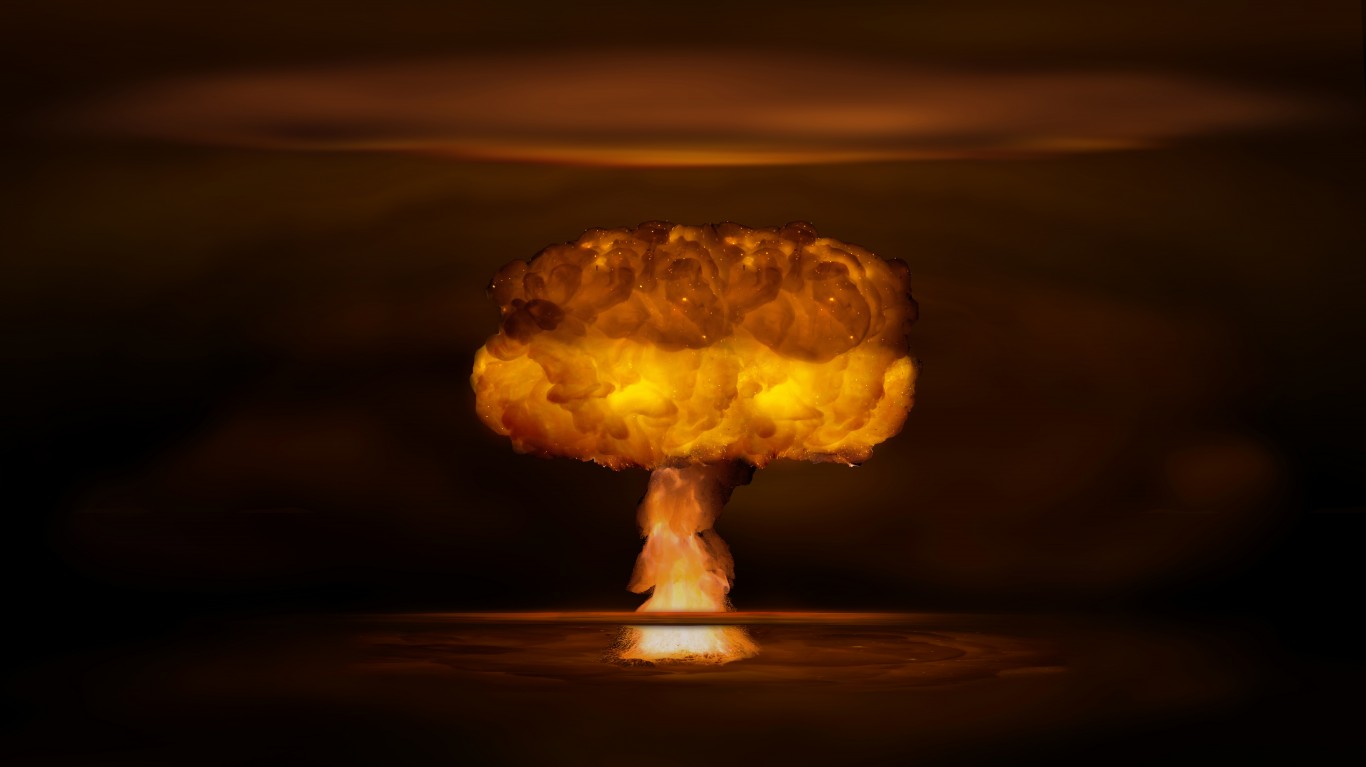
"Roughly 76 years ago, the Soviet Union successfully tested an atomic bomb. This was the beginning of an international arms race that today has 9 countries wielding enough nuclear firepower to make humanity extinct. But what if there were just one country with that power? Would it take the opportunity to destroy a defenseless enemy, or even rule the world?"
"When the U.S. was still the only country with the Bomb, Winston Churchill was in favor of using it against his enemies. The former British Prime Minister urged American leaders to launch a preemptive nuclear strike on the Kremlin to knock out communism in a single blow. You can find the details in the book When Lions Roar: The Churchills and the Kennedys by Thomas Maier. What would have happened had the U.S. acted on this shocking advice?"
"The use of nuclear weapons seems unthinkable, but national leaders do think about when and how they could be used. Today we're trying to stop Russian expansion in Ukraine. Russia has made nuclear threats, and the United States has made counter-threats. Citizens need to be aware of the range of options leaders might consider and take this into account in casting their votes. Should the unthinkable remain that way . . . or is it worth thinking about?"
Seventy-six years ago the Soviet Union tested an atomic bomb, triggering an international arms race that now includes nine nuclear-armed countries. Winston Churchill advocated that the United States use a preemptive nuclear strike to decapitate Soviet leadership and eliminate communism. A sole nuclear monopoly could tempt a state to employ its arsenal, risking perpetual wars, global destabilization, and domestic authoritarianism. National leaders actively consider when and how nuclear weapons might be used, and nuclear threats have featured in the Russia–Ukraine crisis. Citizens should understand the range of nuclear options leaders might contemplate when evaluating policy and leadership.
Read at 24/7 Wall St.
Unable to calculate read time
Collection
[
|
...
]